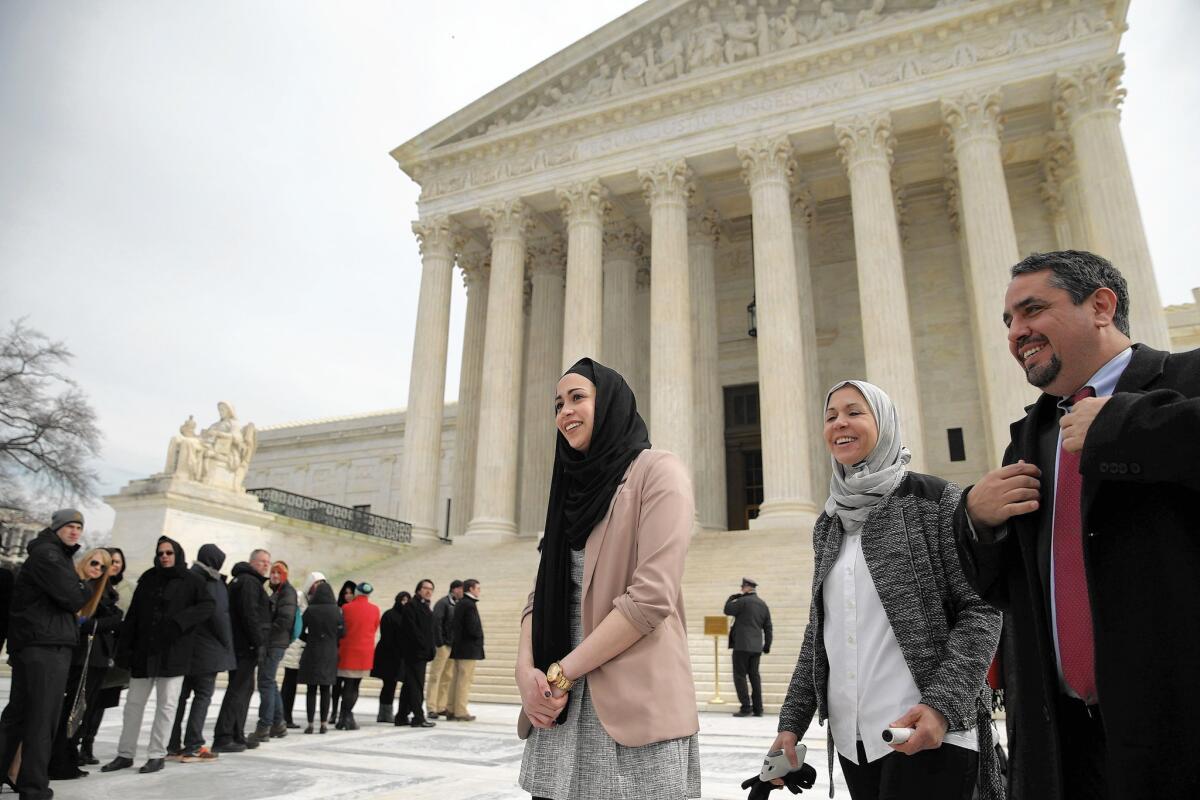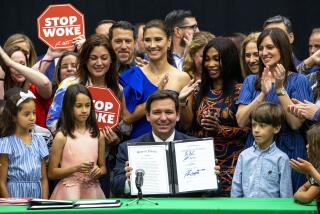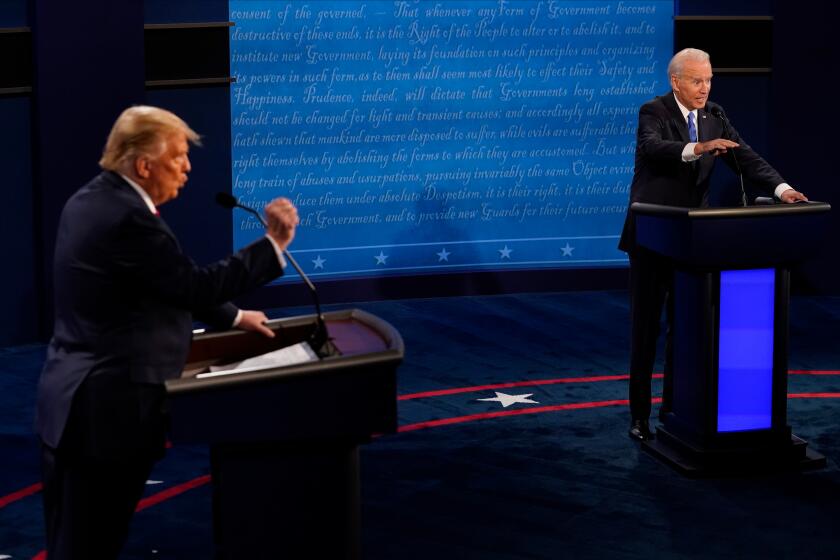Readers React: How much should businesses accommodate their employees’ religious practices?

Samantha Elauf, center, her mother and her lawyer leave the
To the editor: I respectfully disagree with the U.S. Supreme Court ruling stating that the choice of clothing for a woman who was denied a job at Abercrombie & Fitch was religious. It was not. Clothing is cultural, pure and simple. (“Supreme Court sides with Muslim girl denied a job over head scarf,” June 1)
The hijab is the reflection of a culture that considers modesty in women to require such clothing. Conflating freedom of religion with freedom of culture as a constitutional right is dangerous and can lead to many unintended consequences.
Frequently we see statements like “the Muslim veil” in the media. In fact, the veil predates Islam by hundreds of years, and the wearing of a veil during worship is even called out in the Bible (such as in 1 Corinthians, Chapter 11), which hardly makes it Muslim.
What people choose to wear is a personal decision that may be guided by their religious beliefs, but ultimately, these choices come down to what their culture tells them. The Supreme Court erred in misinterpreting this.
Tom Tsotsis, Santa Ana
..
To the editor: As a Muslim woman who wears the hijab (head covering), I feel that the Supreme Court decision in favor of Samantha Elauf was a great victory.
We live in a diverse nation, and for an employer to deny work to someone based on her appearance is disheartening. I applaud the justices for standing up for the religious rights of minorities. It is distressing to see that in this day and age, women are still judged by their appearance.
My religion awarded Muslim women the right to get a job while wearing the hijab more than 1,400 years ago. The Koran says, “Men shall have the share of what they have earned, and women shall have the share of what they have earned.”
I hope employers like Abercrombie & Fitch and others will stop judging women and minorities by their looks and start hiring employees based on their skills.
Saima Sheikh, Allen, Texas
..
To the editor: It is incorrect to say that employers are on notice to make accommodations for religious practices. They are on notice to make accommodations that judges think are reasonable.
I am certain that if a Muslim woman wanted to wear a full veil while working at Abercrombie & Fitch, the Supreme Court would say that forcing the business to accommodate her would be an undue hardship.
It is absurd for judges who are unaffected by whether a business succeeds or fails to tell clothing stores what they should let their employees wear.
Rory Johnstonm, Hollywood
Follow the Opinion section on Twitter @latimesopinion and Facebook
More to Read
A cure for the common opinion
Get thought-provoking perspectives with our weekly newsletter.
You may occasionally receive promotional content from the Los Angeles Times.






